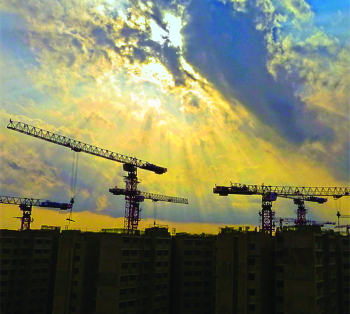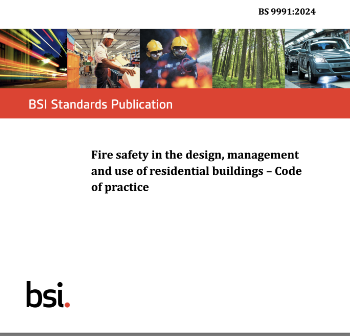Hyperloop in Dubai
Contents[hide] |
[edit] Introduction
Humans have long been fascinated with travel. Wherever we are, we want to get somewhere else, and when we’ve got there, we want to be able to get there faster.
Concorde was once the world’s fastest commercial passenger jet, travelling at speeds of over 2,000 km/hour, more than twice the speed of sound. More recently, Japan’s magnetic-levitation bullet train became the world’s fastest train, travelling at speeds of 600 km/h.
Now there is the Hyperloop, a high-speed ground travel system that is tipped to be the world’s next fastest mode of transport.
And cities are taking it seriously. A new project led by US-based company Hyperloop One aims to take people from Dubai to Abu Dhabi in just 12 minutes, a trip that currently takes about two hours.
[Image: Hyperloop One]
[edit] The future of fast travel
On 8 November 2016, Hyperloop One signed an agreement with Dubai’s Roads and Transport Authority (RTA) to explore high-speed routes in the United Arab Emirates “to figure out where and how to build what would likely be a hybrid passenger-freight system in Emirates.”
In other words, it’s going to work out how to turn the theory of Hyperloop into a reality.
“Dubai makes perfect sense for Hyperloop One because this is the 21st century’s global transport hub and its leaders understand that Hyperloop One is ushering in the next era of transportation,” said Shervin Pishevar, Executive Chairman.
[edit] What is it?
Hyperloop One is exploring the idea first floated by SpaceX founder Elon Musk. This is what Hyperloop One thinks its revolutionary transportation system will look like:
In the future, Hyperloop One passengers would board a capsule that travels through giant tubes at 1,200 km/h, using electric propulsion.
'Hyperpods' would seat anywhere from six to 100 people. Businesses could use meeting pods as a moving conference room, and there would even be a critical-care pod to whisk patients to the hospital, according to the company.
[Image: Hyperloop One]
The Hyperloop system would have minimal impact on the environment, and because the vehicle floats slightly above the track, it would be able to travel faster than an airplane. “We eliminate direct emissions, noise, delay, weather concerns and pilot error. It’s the next mode of transportation,” says the company.
Travel between cities would be drastically reduced: Dubai to Abu Dhabi in 12 minutes; Dubai to Doha in 23 minutes; Dubai to Muscat in 27 minutes; and Dubai to Riyadh in 48 minutes.
Here’s what Hyperloop One’s Marvin Ammori had to say when interviewed on the concept at this year’s Annual Meeting of the Global Future Councils in Dubai.
https://www.facebook.com/worldeconomicforum/videos/10153906462661479/
[edit] Will it happen?
It’s a giant leap in terms of technology, and even the founders of Hyperloop One admit that “some engineers knew how to build rockets and cars. Our technology stack doesn’t even exist.” There are also financial and regulatory hurdles ahead, they add.
This recent agreement, however, puts Hyperloop firmly on track.
This article was written by Alex Gray, Senior Writer, Formative Content. It was originally published on the Future of Construction Knowledge Sharing Platform and the WEF Agenda Blog.
[edit] Have you read?
- The hyperloop, passenger drones and other audacious transport breakthroughs
- This is what it might be like to travel in a Hyperloop pod
- 2 hours to 30 minutes. This is what our technology could do to your commute
[edit] Related articles on Designing Buildings Wiki
- 2 hours to 30 minutes. This is what our technology could do to your commute.
- High Speed 2 (HS2).
- Hyperloop One.
- Real estate investment in Dubai.
- The challenges facing Hyperloop One.
- The transport revolution of Hyperloop.
- Top Architectural Wonders of Dubai.
- Transport design and health.
--Future of Construction 14:09, 20 Jun 2017 (BST)
Featured articles and news
CLC and BSR process map for HRB approvals
One of the initial outputs of their weekly BSR meetings.
Building Safety Levy technical consultation response
Details of the planned levy now due in 2026.
Great British Energy install solar on school and NHS sites
200 schools and 200 NHS sites to get solar systems, as first project of the newly formed government initiative.
600 million for 60,000 more skilled construction workers
Announced by Treasury ahead of the Spring Statement.
The restoration of the novelist’s birthplace in Eastwood.
Life Critical Fire Safety External Wall System LCFS EWS
Breaking down what is meant by this now often used term.
PAC report on the Remediation of Dangerous Cladding
Recommendations on workforce, transparency, support, insurance, funding, fraud and mismanagement.
New towns, expanded settlements and housing delivery
Modular inquiry asks if new towns and expanded settlements are an effective means of delivering housing.
Building Engineering Business Survey Q1 2025
Survey shows growth remains flat as skill shortages and volatile pricing persist.
Construction contract awards remain buoyant
Infrastructure up but residential struggles.
Home builders call for suspension of Building Safety Levy
HBF with over 100 home builders write to the Chancellor.
CIOB Apprentice of the Year 2024/2025
CIOB names James Monk a quantity surveyor from Cambridge as the winner.
Warm Homes Plan and existing energy bill support policies
Breaking down what existing policies are and what they do.
Treasury responds to sector submission on Warm Homes
Trade associations call on Government to make good on manifesto pledge for the upgrading of 5 million homes.
A tour through Robotic Installation Systems for Elevators, Innovation Labs, MetaCore and PORT tech.
A dynamic brand built for impact stitched into BSRIA’s building fabric.
BS 9991:2024 and the recently published CLC advisory note
Fire safety in the design, management and use of residential buildings. Code of practice.



























